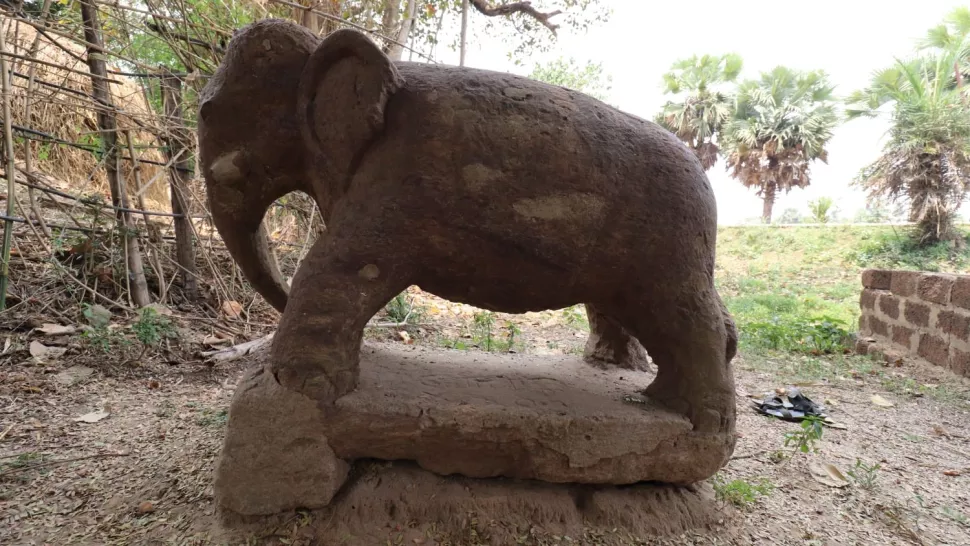

2,300-year-old Buddhist elephant statue from India is one of the oldest known.
Indian archaeologists have unearthed a statue of an elephant in Odisha carved about 2,300 years ago, when Buddhism was the main religion in the region during the reign of Emperor Ashoka.
The statue is about 3 feet (1 metre) high and carved from rock in the same style as other Buddhist statues of elephants found across the state of Odisha.
Historian Anil Dhir and other members of an archaeological team from the Indian National Trust for Art and Cultural Heritage (INTACH) unearthed the statue in April at a village on the banks of the Daya River in Odisha’s Puri District.
“We were surveying the Daya River Valley to document its heritage,” Live Science reported Dhir as saying. “This area is rich in artifacts from the ancient Buddhism which flourished here.”
The team found several other buried archaeological relics around the village, including architectural pieces from a Buddhist temple, the Life Science report added.
The elephant statue is very similar to one found at Dhauli, also known as Dhaulagiri, an ancient center of Buddhism about 19 km upstream and has been dated to between 272 B.C. and 231 B.C., according to Dhir
The elephant statue has a deep link with Buddhist teachings. “In the quiet solitude of the forests, the spiritual giant finds solace, as does the mighty elephant,” the Buddha once said, as quoted in the Udana or “heartfelt sayings,” according to a report in Bhutan Live
India could have inflicted more damage while retaliating to Pakistan's terror attacks with 'Operation Sindoor'…
Sikkim has decided a democratic future for itself 50 years ago and over these 50…
Panama's Foreign Minister Javier Martinez Acha on Thursday backed India for a permanent seat in…
US Congressmen Raja Krishnamoorthi opposed the Donald Trump administration for freezing student visa interviews amid…
A grand welcome celebration for Ayodhya Shri Ram Lalla was organized by the Ayodhya Shri…
The Foundation stone for the construction of the Agriculture Promotion Centre for Food Grains Collection…